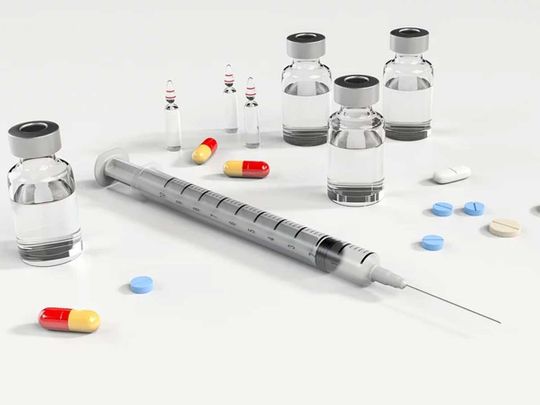
Abu Dhabi: After battling drug addiction for 16 years, a Saudi addict has recovered and returned to normal life.
M.M., 36, says he has been shamed, embarrassed, and at times stigmatised. “Even today, years later, I fear retribution, and liability,” he said.
"Some of this may have been deserved at one time, but today my story is one of success, hope, support and of recovery.
"I share this intimate tale so that you can hear the human side of addictive disease, of its treacherous grip, two suicide attempts, and of the freedom and confidence from which I have emerged from this terrifying illness.
He added: “Fortunately, when everything was crumbling around me, as I was street junkie making covert deals in dark alleys, I got support and advice. With the guidance of Abha Psychiatric Hospital, Asir, I got into a treatment programme that helped me realise that I suffered from a virulent illness and was both worthy and deserving of help.
“I was medically detoxified from the effects of the medications I had now stopped taking. I learned to take responsibility for my behaviours, but also to recognise that I had been sick and could certainly get well. I learned that addiction would be a lifelong condition, but not a lifelong impairment. I had to work hard. I saw a therapist to address issues of addiction, shame, honesty and interpersonal relationships. I submitted to regular and random drug screens. I attended support group meetings, met with sponsors and mentors, and in doing so, changed my life dramatically.
“After months of treatment, learning about my disease and learning about myself, I came back home feeling strong. I was healthy, drug free, clear thinking, and ready to pull my career back together.
“I had an outlet for sharing my experiences and for learning from example that there was indeed hope for my future. And most importantly, I had my sobriety and my health,” he said.
“Ultimately, I did return to normal life. It was no easy journey. The process took years. During this time I was doubted by others and I doubted myself. But now I am stronger. I have the confidence of knowing that whatever ills befall me, I can heal,” he said.
M.M. was one of 139 addicts who were discharged from the Abha Psychiatric Hospital after they fully recovered and doezens more are still recovering, said Dr Abdullah Al Wadaei of the addict rehab wing. A number of studies have indicated that there is an increasing prevalence in substance abuse in Arab countries. The typical profile of a substance abuser is a young unemployed male of low educational status. Studies conducted in Saudi Arabia reported that the mean age of substance abusers was 29 years with those who abuse heroin younger than those who abuse only alcohol.
Studies have also reported low prevalence rates among women aged 13 to 15 which may be due to specific treatment protocols for women. For example, in Kuwait women are treated either in general psychiatric units or prisons, not in specialised rehabilitation centres. However, the stigma attached to substance use and fear of disclosure often makes it challenging for researchers to obtain data from men, let alone from Arab women.
Although there is substantial research on alcohol and substance abuse in the Arab region, only a few papers give a detailed review of the rising concern.
Specifically, the authors of one study argued that the problem of drug abuse in Arab countries is multi-dimensional and treating the problem is challenging as there is currently no programme in the region universally efficient in reducing drug dependence. In their review, they acknowledge the fact that both criminalisation and decriminalisation have no apparent effect in reducing addiction. Similarly, another study emphasised the complexity of treating addiction in Arab countries and the challenges to research due to stigma and fear of disclosure due to culture or the law.
A 10-year review of 591 patients admitted to a drug rehabilitation centre showed all admitted cases were men between 16 and 66 years of age. Among the cases, 42 per cent were married, 60 per cent were unemployed, 51 per cent were educated below secondary school level, 77 per cent had been admitted voluntarily, and 23 per cent were brought to the clinic by family members. In addition, 41 per cent were admitted dueto alcohol problems, 20 per cent for prescription drugs, and 16 per cent for heroin use.








